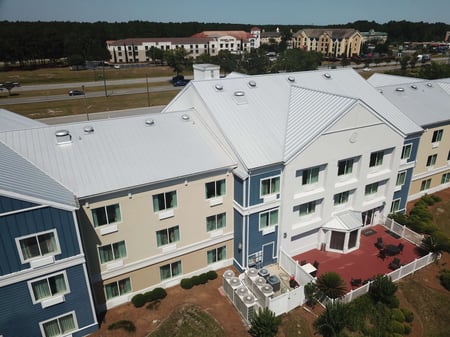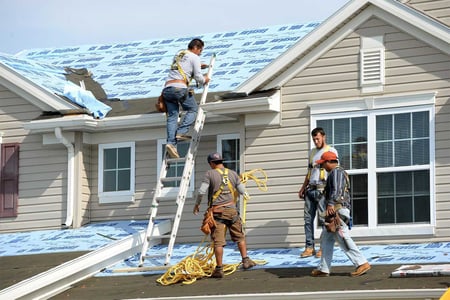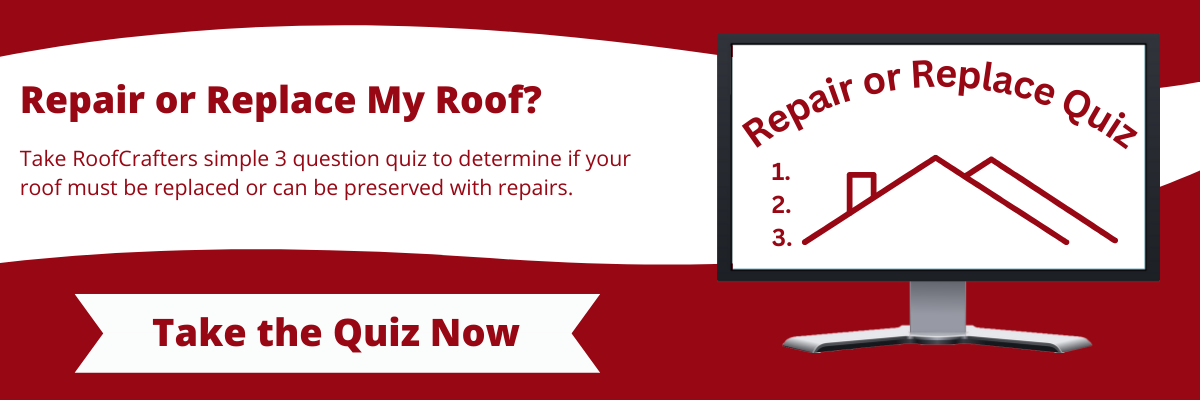
You’ve probably heard the pitch: “Roof coating extends your roof’s life, saves you thousands, and slashes energy bills!” Sounds like a win-win, right? Well… kind of.
At RoofCrafters, we can tell you that while roof coatings can be incredibly effective when applied in the right conditions, they’re not a one-size-fits-all solution. In fact, there are plenty of things property owners aren’t told before they jump headfirst into a coating project, and some of them could cost you more in the long run.
So let’s break down the truth about roof coatings, without the sugarcoating. This article will explore what roof coatings are, when they work (and when they don’t), and what you really need to know before saying yes to a contractor’s quote. Let’s get started!
What Are Roof Coatings, Really?

Let’s start with the basics. A roof coating is a fluid-applied membrane that’s sprayed or rolled onto an existing roof surface. It’s designed to protect, seal, and extend the lifespan of the underlying material.
Roof coatings come in different types, including:
- Silicone roof coatings (great for ponding water)
- Acrylic coatings (cost-effective and UV resistant)
- Polyurethane coatings (highly durable and impact-resistant)
- Asphalt-based coatings (commonly used on older flat roofs)
They can be applied to various roofing systems, including metal, modified bitumen, single-ply, built-up, and more. The idea is to restore the roof’s surface without a full tear-off, reducing costs and downtime. Sounds great, right? So where’s the catch?
Roof Coatings Aren’t Always a Magic Fix

Here’s the first hard truth: Roof coatings can’t fix a failing roof. If your roof is leaking in multiple places, has saturated insulation, or is nearing the end of its service life, slapping on a coating might temporarily help, but it won’t solve the underlying issues. And within a year or two, you’ll likely be facing the same problems, or worse.
Signs a roof coating might not be enough:
- Your roof has active leaks in multiple areas
- There’s visible rust, rot, or soft spots
- Insulation is wet or damaged
- The roof is more than 20 years old with a poor maintenance history
In these cases, you’re better off exploring a full roof replacement or restoration, especially if you want your warranty to mean something.
When Roof Coatings Do Work Wonders

Don’t get us wrong, when applied under the right conditions, roof coating systems can be incredibly effective. A professionally applied roof coating can:
- Extend your roof’s life by 10–20 years
- Reflect up to 90% of UV rays, improving energy efficiency
- Prevent leaks and water intrusion
- Qualify your building for energy tax credits or LEED points
- Offer cost savings compared to a full replacement
But there’s a catch (there’s always a catch): it only works when the roof is in good shape. Think of a roof coating like a new paint job on your car. If the body is solid, the paint protects it. But if the frame’s rusted through? That paint’s just a pretty bandage on a bigger problem.
How to Know If Roof Coating Is Right for You
So, how do you know if your building is a good candidate for a coating? Here’s what to consider before greenlighting a project.
Get a Professional Roof Inspection
You need a trained eye to determine whether your roof is in the right condition for a coating. Ask for:
- Core cuts to check insulation moisture levels
- Infrared scans to detect hidden water damage
- A full drainage and slope assessment
Bonus points if your contractor provides photo documentation and a written condition report!
Choose the Right Type of Coating
Not all coatings are created equal. For example:
- Got ponding water issues? Go silicone.
- Working with a tight budget and minimal standing water? Consider acrylic.
- Need max durability for a high-traffic roof? Think polyurethane.
Make sure your contractor explains the pros and cons of each option based on your specific roof type.
Understand the Warranty
Here’s where a lot of people get burned: Not all warranties are created equal. Some manufacturers only warranty their product if it’s installed under exact conditions and properly maintained. Others offer prorated coverage that diminishes every year. Ask:
- Is the warranty material-only, or labor and material?
- Is it prorated?
- What conditions void the warranty?
The fine print matters more than you think.
Bonus Truths Most Contractors Won’t Mention

If you’re serious about making the best decision for your building, here are a few extra nuggets of wisdom: Roof coatings need maintenance, too. Just because your roof is coated doesn’t mean you can forget about it. Annual inspections are crucial. Tiny punctures, debris buildup, or UV breakdown can lead to premature failure.
Also, coatings don’t fix structural problems. Got ponding water because of poor drainage or a sagging structure? A coating won’t fix that. You’ll need to address the underlying issues before a coating can work long-term.
When it comes to coatings, timing is everything. Temperature, humidity, and even how sunny it is that day can affect how well the coating cures. Rushed jobs or poorly timed applications can peel, crack, or bubble within months.
Should You Coat or Replace?
If your roof is still structurally sound, a coating might be the perfect move. It’s less disruptive, more affordable, and eco-friendly compared to a full replacement. Plus, reflective coatings can reduce cooling costs significantly in warmer climates.
But if your roof is already in bad shape? Don’t let a shiny coating mask the bigger problems. In that case, it’s wiser (and often cheaper long-term) to replace the system and start fresh.
The bottom line? Don’t get swept up in the hype. Get the facts, ask the tough questions, and make the decision that’s right for your building, budget, and long-term goals. If you need help figuring out if your roof is a candidate for coating, be sure to hit that “Schedule an Inspection” button down below!
My name is Kevin Mills, and I am the lead estimator for RoofCrafters’ Tampa division. I’m originally from Michigan, and I enjoy hunting, fishing, and spending any free time outdoors. What I’m most passionate about, though, is helping business owners and homeowners alike achieve their roofing goals, all while providing a seamless customer journey.



